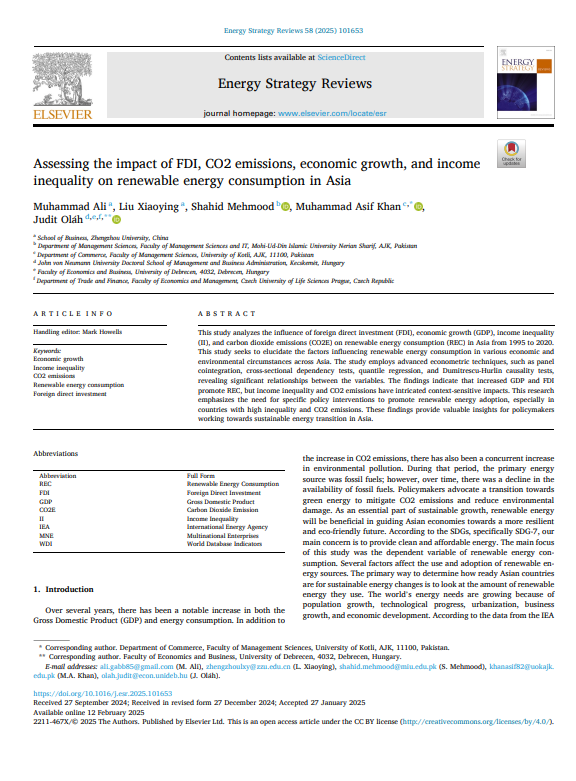
Keyword(s)
Author(s)
Muhammad Ali, Liu Xiaoying, Shahid Mehmood, Muhammad Asif Khan, Judit Oláh
Country(ies)
Publisher
Published Date
Access
DOI
This study analyzes the influence of foreign direct investment (FDI), economic growth (GDP), income inequality (II), and carbon dioxide emissions (CO2E) on renewable energy consumption (REC) in Asia from 1995 to 2020. This study seeks to elucidate the factors influencing renewable energy consumption in various economic and environmental circumstances across Asia. The study employs advanced econometric techniques, such as panel cointegration, cross-sectional dependency tests, quantile regression, and Dumitrescu-Hurlin causality tests, revealing significant relationships between the variables. The findings indicate that increased GDP and FDI promote REC, but income inequality and CO2 emissions have intricated context-sensitive impacts. This research emphasizes the need for specific policy interventions to promote renewable energy adoption, especially in countries with high inequality and CO2 emissions. These findings provide valuable insights for policymakers working towards sustainable energy transition in Asia.